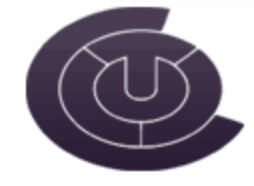CIUTI Policy Statement
At a time when English is the global lingua franca and technology claims to offer instant solutions to overcome language barriers, it might be tempting to believe that translation and interpreting are fated to disappear and that translators and interpreters are endangered species. This is a misconception: in an increasingly globalised and inclusive world, translation, interpreting and related language professions are more essential than ever.
Because of communication. Not everyone speaks English. Only properly trained language professionals can ensure error-free and risk-free communication across languages and cultures at a time when freedom of movement and global migration have multiplied the opportunities and need for people with different linguistic and cultural backgrounds to interact.
Because of the quality of communication. Lingua francas have always existed. But communication in a language that is not one’s own mother tongue inevitably involves certain limitations and difficulties of expression and comprehension. Qualified translators, interpreters and related language professionals are the only possible solution, as technology is unable to deal with the infinitely rich, complex and culturally entrenched communication between human individuals and communities.
Because of the dangers of monolingualism. The use of a single language in the production and communication of knowledge carries the risk of imposing a monoculture that does not reflect the epistemological diversity that multilingualism embodies. In focussing on commercially viable languages, technology reinforces linguistic monocultures, whereas the variety of languages represented by professional translators and interpreters averts such a risk.
Because of the implementation and enjoyment of rights. Language can be an obstacle to full access to public services for those lacking proficiency in the language of the country that is hosting them. This is particularly important in sensitive areas such as justice and healthcare. Qualified translators and interpreters are instrumental in guaranteeing the protection of human rights enshrined in international law. Moreover, purely technological solutions offered by private companies storing data for their own purposes are likely to pose additional risks in terms of confidentiality and privacy.
Safeguarding the quality of the language professions and the research-based training provided by accredited institutions is therefore of paramount importance.
Many things may change in the future, especially in terms of technological development. But no matter how great its impact, technology will never be able to replace human added value. There will always be a need for translation and interpreting – and for the qualified individuals who are able to meet that need empathically, creatively, adaptively and ethically.
Knowing languages is a necessary but insufficient condition for the practice of translation and interpreting – only properly trained and qualified professionals possess the highly specialised competences and skills that such work demands. The social and economic importance of translation and interpreting makes it imperative that only competent professionals should be engaged in these activities.
Despite varying local traditions, circumstances and requirements, training in translation, interpreting and related language professions, at both undergraduate and postgraduate levels, is guided by rigorous standards and oriented on shared models of competence and research. It is in the decisive interest of education authorities to promote and support departments and institutes of translation and interpreting, which provide the essential technical and cultural instruments to train all those able to meet such a specific societal need. This applies just as much to the research that underpins the training and to the technologies that assist and support translators, interpreters and language professionals in their work.
Training, research and service to society are the three key mandates of universities the world over. Translation and interpreting, two academic disciplines shaping high-quality professional practice, are ideal fields in which to perform them.
Founded in 1960, CIUTI has developed from a European-based organisation into a worldwide association with more than 50 institutional members in four continents. Its mission is to promote quality and excellence in training and research in translation, interpreting and related disciplines.
